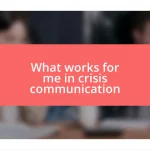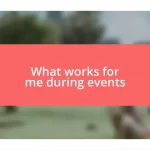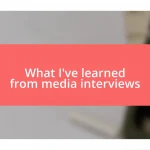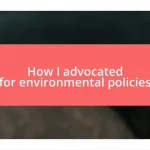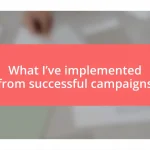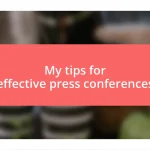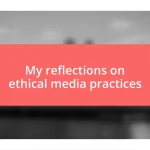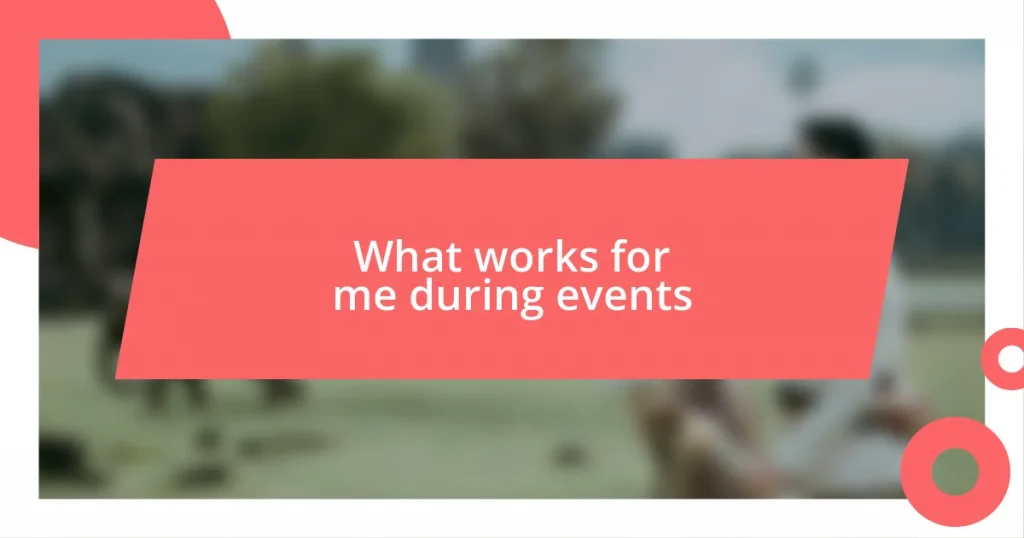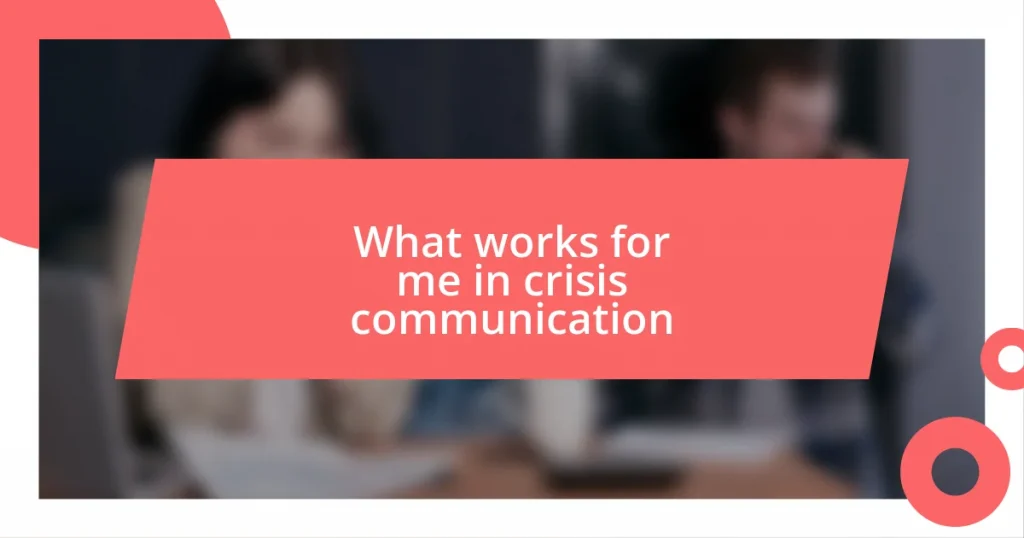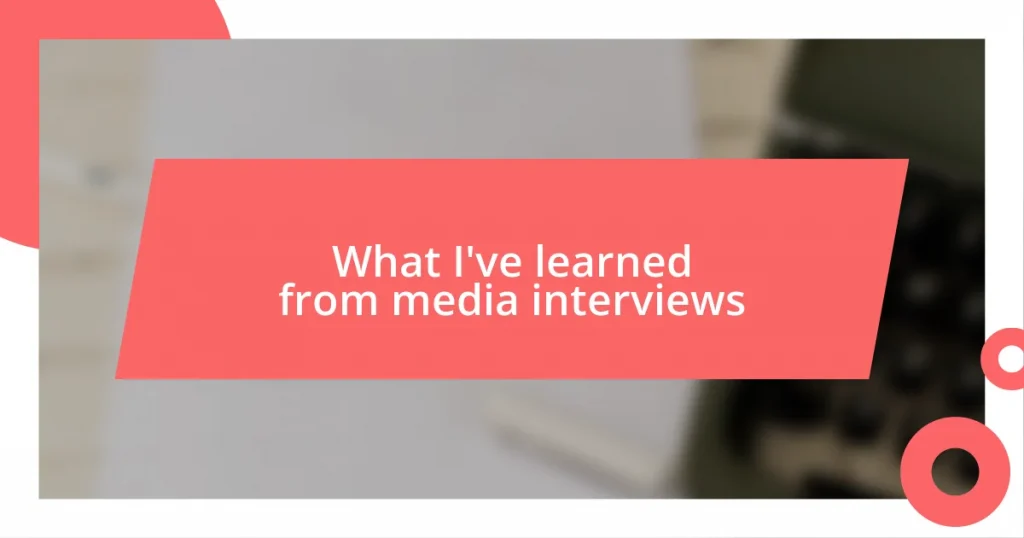Key takeaways:
- Understanding personal energy and finding balance between structured time and breaks enhances event engagement.
- Effective planning with checklists, event layout visualization, and setting specific goals boosts organization and focus during events.
- Post-event reflection through journaling, discussions, and reviewing materials deepens insights and helps leverage experiences for future opportunities.
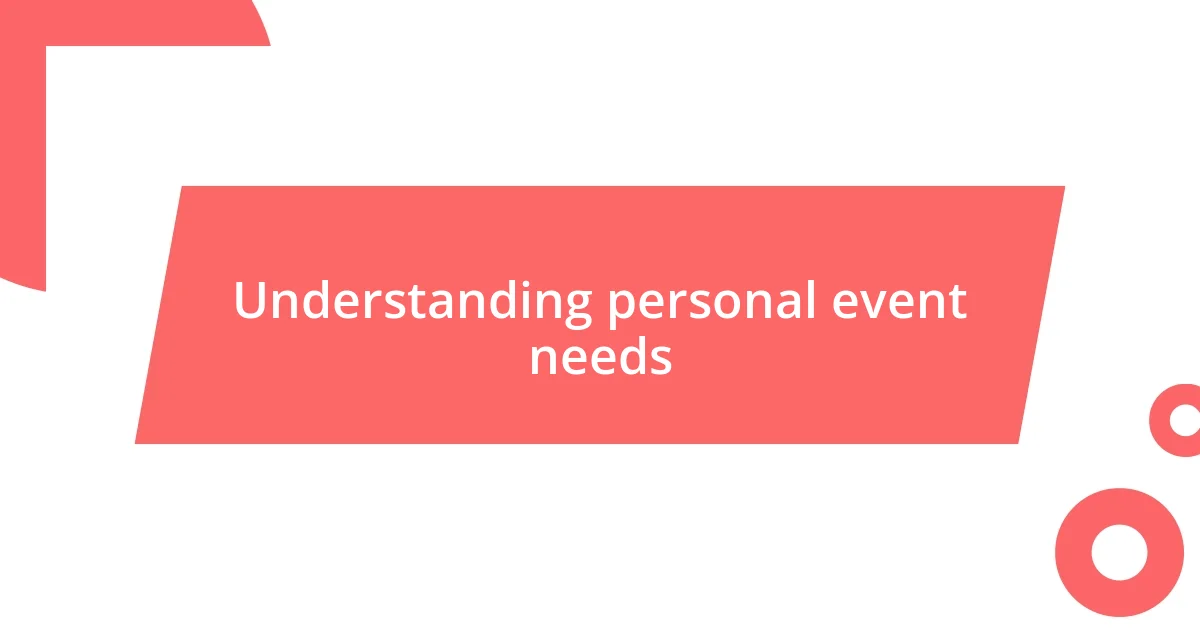
Understanding personal event needs
When I think about personal event needs, I often reflect on my first experience in a large conference. I remember feeling overwhelmed, not just by the sheer number of people, but by the sensory overload of sights and sounds. This made me realize that some environments energize me, while others drain me. Have you ever found yourself in a situation where you felt your energy plummet? It’s crucial to identify what aspects of an event truly charge your batteries.
I’ve also discovered that my engagement peaks when I have a blend of structured time and freedom. For instance, at networking events, I prefer having designated sessions to interact with others, but I thrive during breaks when I can step outside for fresh air. It’s a balance that makes all the difference. What do you find helps you recharge during long events?
Listening to my body and emotions has been invaluable, too. After attending several back-to-back workshops, I learned that my need for quiet reflection time is just as important as learning in a group. Finding little pockets of peace has transformed my experience at events. Have you considered how your emotional states influence your event enjoyment? Understanding these personal nuances can lead to a much richer event experience.
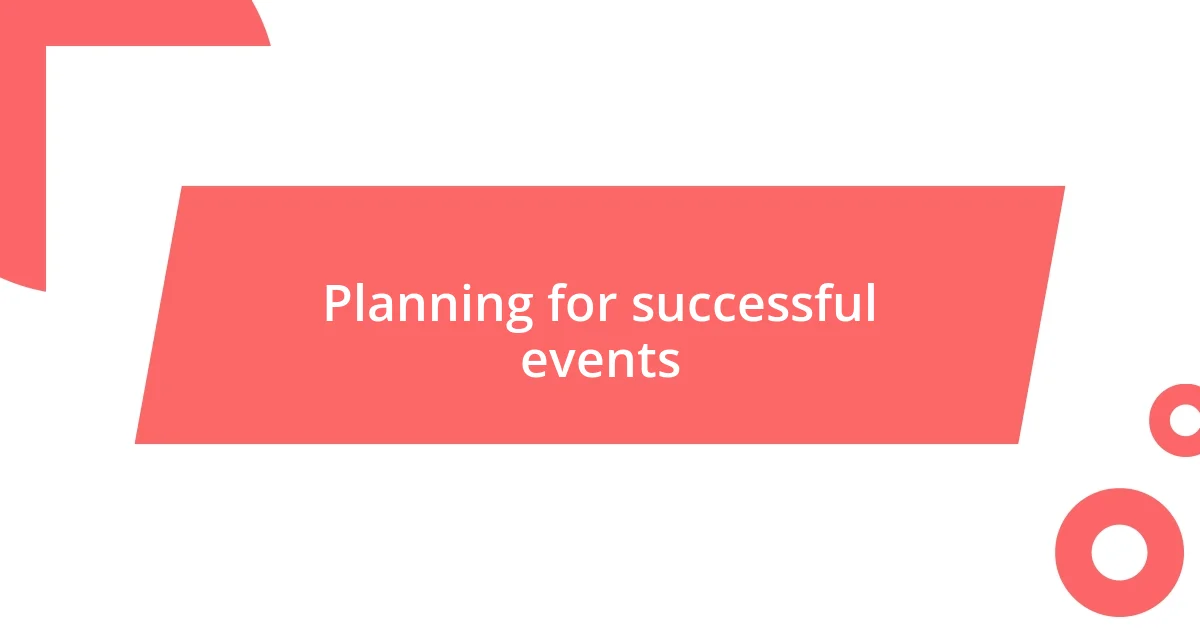
Planning for successful events
Planning for successful events requires a comprehensive approach. Personally, I find that creating a detailed checklist helps me stay organized and focused. During one particular event, forgetting the little things, like name tags and printouts, added unnecessary stress to my day. Have you ever thought about how something so small can make a big difference?
I believe that visualizing the flow of the event is crucial for success. I often sketch out the event layout, considering factors like seating arrangements and traffic flow. At a recent seminar, having a clear picture of the layout helped me anticipate where networking opportunities might arise, making it easier for me to connect with others. How do you map out your events?
In addition to that, I think it’s essential to set specific goals for each event. When I attended a trade show last year, I went in with a simple target: to meet three potential partners. This clarity not only kept my efforts focused but also allowed me to feel accomplished by the end of the day. What strategies do you use to gauge your success during events?
| Strategy | Personal Insight |
|---|---|
| Checklist Creation | Reduces stress and organizes my priorities effectively |
| Event Layout Visualization | Helps anticipate networking opportunities and overall flow |
| Setting Specific Goals | Maintains focus and provides a sense of accomplishment |
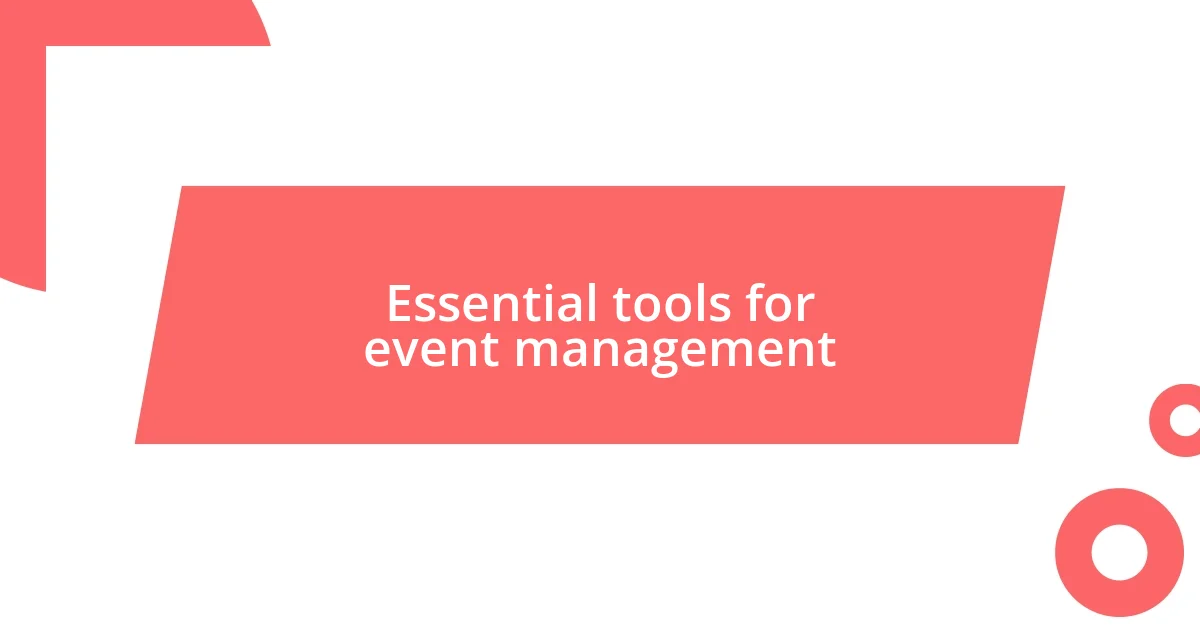
Essential tools for event management

Essential tools for event management
In my journey through various events, I’ve discovered that the right tools can truly make or break the experience. I recall a particularly chaotic workshop where I didn’t have access to a reliable event management platform. It was frustrating trying to keep track of everything manually. The next time, I ensured I had the right software, and what a difference it made! Suddenly, tasks like scheduling and attendee management felt seamless and efficient. Have you ever experienced that “aha” moment when technology lifts some weight off your shoulders?
Investing in essential tools can elevate your event management skills significantly. Here’s what I’ve found indispensable:
- Event Management Software: A tool like Eventbrite or Cvent helps streamline registrations, track attendees, and manage communications effortlessly.
- Mobile Apps: Having a dedicated event app allows for real-time updates and an easy way for attendees to connect. I remember using one at a conference, and it kept the conversations flowing.
- Collaboration Tools: Platforms like Slack or Trello can help teams coordinate tasks, share updates, and keep everyone in the loop, essential for remote events.
- Feedback Forms: Tools such as Google Forms or SurveyMonkey provide a way to gather valuable insights from attendees post-event. After incorporating feedback from past events, I noticed my next gathering was more aligned with what participants wanted.
- Tidy Inventory Management Tools: Simple systems or apps for tracking materials and supplies can save you from last-minute scrambles.
Embracing these tools transforms event management from a daunting task into a more enjoyable and fulfilling experience. What tools have you found essential in your event planning adventures?
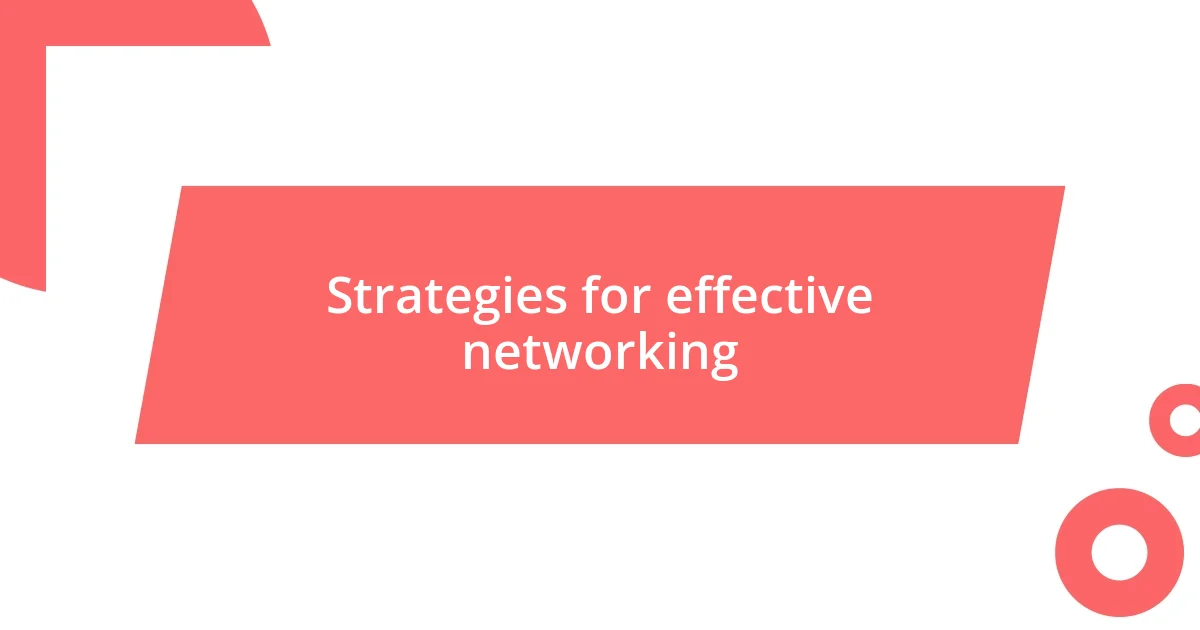
Strategies for effective networking
Networking is an art that thrives on genuine connections, and one effective strategy I employ is starting with shared interests. At a recent conference, I approached a small group discussing a topic close to my heart. By engaging in this way, I not only broke the ice but also created a comfortable atmosphere where we could exchange ideas freely. Have you ever noticed how a common point of interest can spark exciting conversations?
Another approach I find valuable is active listening. Instead of planning my next comment while someone else is talking, I focus on what they’re saying. During an event last year, this practice helped me uncover a mutual connection with someone in the tech industry. Our conversation flourished because I acknowledged their insights first. It’s amazing how being genuinely interested in others can create lasting impressions, don’t you think?
Lastly, I always make it a point to follow up promptly after an event. Collecting business cards is great, but reaching out soon after helps solidify those connections. I remember sending a brief email to a fellow attendee the day after a workshop, mentioning a specific idea we discussed. That simple gesture led to a collaborative project down the line. How often do you reach out after networking opportunities?
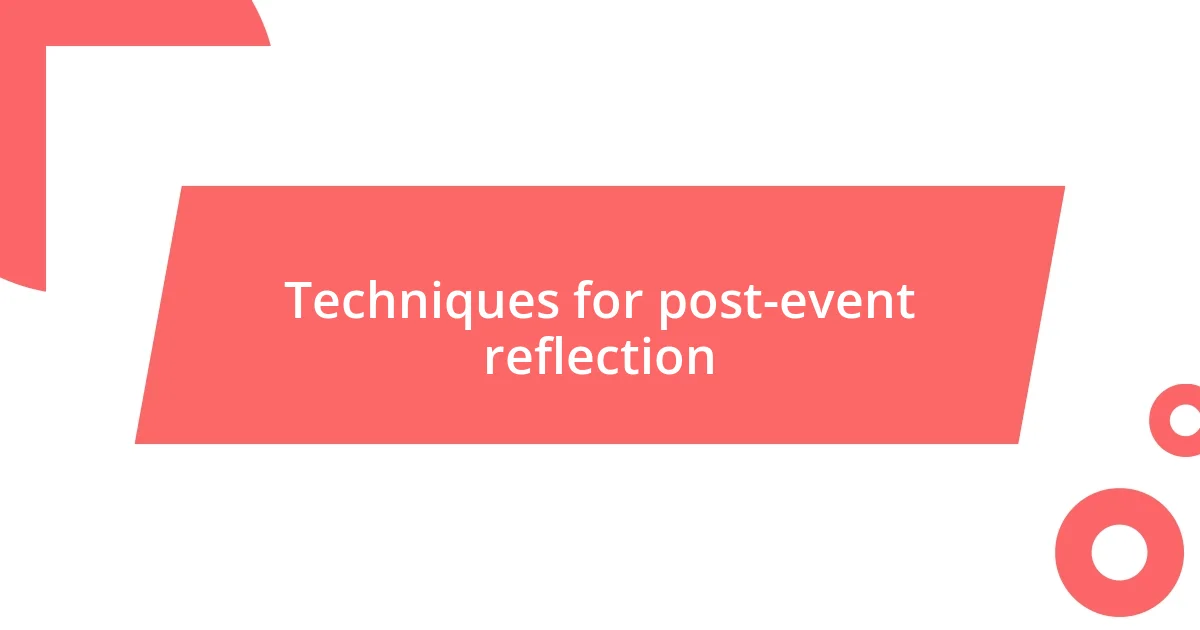
Techniques for post-event reflection
Reflecting on an event can be incredibly beneficial, and one technique I find effective is journaling right after the experience. I remember attending a seminar where I jotted down my thoughts and feelings almost immediately. This simple act allowed me to capture my raw emotions and insights before they faded away. Have you ever tried writing down your experiences right after an event? It can bring clarity and help you identify what truly resonated with you.
Another method I often employ is discussing my experiences with a trusted colleague or friend. I’ve found that talking about the event allows me to process what happened on a deeper level. For instance, after a particularly insightful workshop, I grabbed coffee with a fellow attendee and we shared our key takeaways and personal reactions. This exchange opened up new perspectives that I hadn’t considered. Sharing can be cathartic; have you had similar experiences that enriched your understanding through conversation?
Lastly, I recommend going through any materials or handouts you received during the event. Often, there are gems of information that I miss in the moment. After a recent conference, I sifted through the notes and handouts, and I was reminded of a brilliant idea that sparked from a breakout session. I couldn’t help but feel grateful for the opportunity to revisit that knowledge and integrate it into my work. Isn’t it amazing how revisiting these materials can lead to fresh insights?
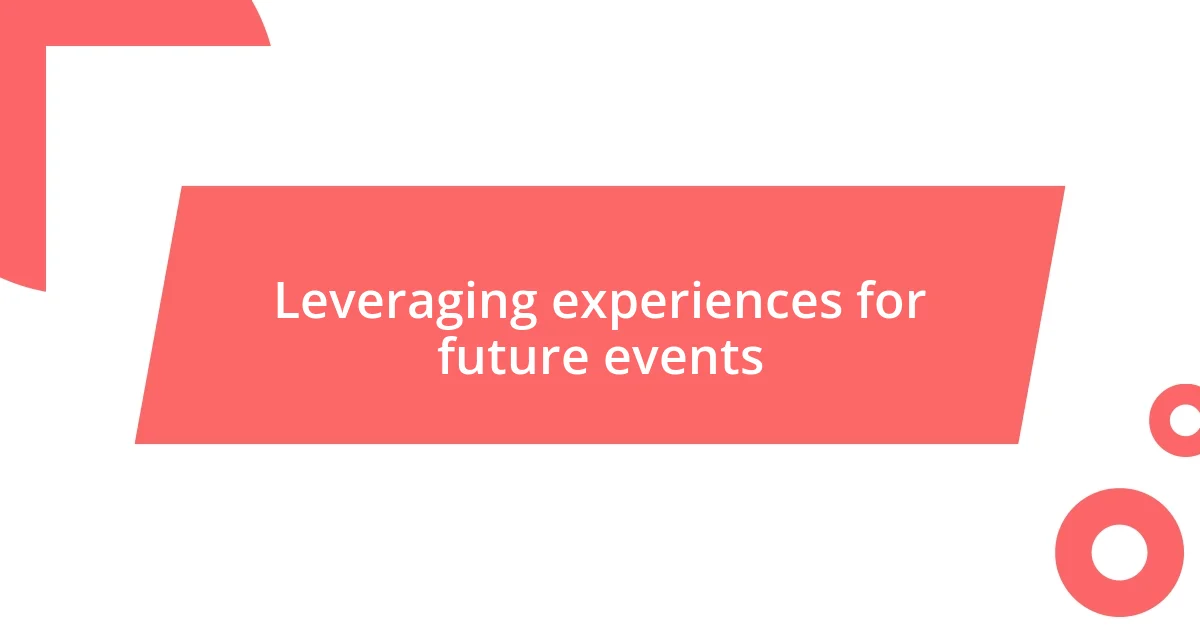
Leveraging experiences for future events
Leveraging the experiences from past events has been a game changer for me. After attending a panel discussion last year, I realized that certain questions really sparked dynamic conversations. I made a note of those in my event planner, thinking how crucial they could be for my future networking. Have you ever considered how your past interactions can help you navigate future ones?
I also look back at feedback I received during previous events. There was a time when I received constructive criticism about my presentation style. Rather than taking it personally, I used that feedback to reshape my approach for future talks. It was nerve-wracking, but my next presentation felt more authentic, and my audience’s response was overwhelmingly positive. Isn’t it empowering to fuel your growth with insights gained from before?
Another strategy I cherish is revisiting connections made at past events. Sometimes, a casual coffee with someone I met months ago can reignite collaborative ideas we discussed back then. I once had a chance encounter with a designer who I met at a marketing event. We planned to chat several months later, and that reconnection led to an innovative project that I truly enjoyed. Isn’t it fascinating how past connections can evolve into new opportunities?
